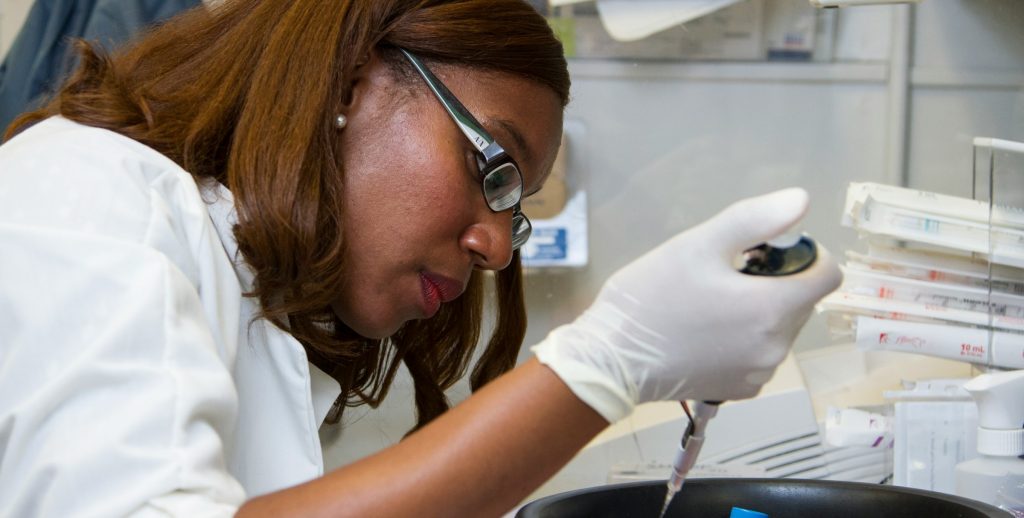Doctors in New York discover a new STI caused by ringworm
Sexually active people need to be aware of another infection that could plague their sex lives.
While STIs tend to be caused by bacteria, viruses, and parasites, a new pathogen has entered the arena.
What’s is this new infection? Let’s find out!

Don’t leave your sexual health to chance. Get tested with Better2Know today.
What is ringworm?
Doctors in New York have confirmed a new case of sexually transmitted ringworm. Ringworm, contrary to what its name might imply, is not a worm, but a form of fungus. The fungus survives on the dead tissues of the skin, hair, nails, or scalp.
During a normal ringworm infection, the main symptom is a rash. It may look red or darker than the surrounding skin, depending on your skin colour. The rash is usually ring-shaped, with a lighter periphery than the more lightly-coloured centre. The rash can be scaly, itchy, and dry.
Most ringworm infections are passed on by:
- Repeated exposure to an infected person or animal
- Being repeatedly exposed to infected objects, like clothes, surfaces, and bedsheets
- Touching infected soil (less common)
However, the ringworm we’re talking about today isn’t your average infection…
How is ringworm sexually transmitted?
The ringworm reported in JAMA Dermatology isn’t your average infection. The strain of ringworm is called Trichophyton mentagrophytes ITS genotype VII (TMVII).
Health authorities have been paying attention to TMVII for some time after reports of its spread popped up in France and Southeast Asia in 2023.
The fungus causes symptoms similar to jock itch, eczema, or psoriasis, creating a markedly red and scaly rash. Some patients with TMVII also develop painful inflamed sores that can become “superinfected”, with pockets of pus that may lead to scarring, although this seems to be fairly rare among people who get it.
The fungus appears able to spread through sexual contact, through prolonged physical contact with another person through sex, or by sharing sex toys. According to published reports, the infection is most common among men who have sex with men. The fungus may also be circulating among people in other ways, like through sharing towels and clothes.
It is thought that barrier methods of contraception like condoms cannot help in reducing the spread. Because the fungus spreads through prolonged contact, it is impossible to completely cover the affected area, which may not be possible in all cases, especially if the affected area isn’t isolated to the head and shaft of the penis.
While most ringworm infections respond well to topical antifungals, TMVII seems a little different. TMVII infections can take many weeks to clear up when using over-the-counter anti-fungal treatments. It is common to need oral antifungal tablets. According to the original report, one patient’s infection took four weeks to completely clear from his body. Other patients required hospitalization, although this is extremely rare.
Whether this fungus is particularly resistant to treatment, or if the infection simply got worse because it took doctors so long to identify it, is unknown.
The emergence of TMVII follows another interesting case reported by the CDC in March of 2024, where doctors logged a case of sexually transmitted Trichophyton indotineae, another type of contagious fungus, from a woman in Pennsylvania who contracted the infection during a sexual encounter in Southeast Asia. The fungal infection caused genital lesions that were at first mistaken for a simple case of contact dermatitis.
Are there a lot of new infections?
At the moment, cases TMVII in the US and in France number about 100. No UK infections have been logged during the time of writing.
What other STIs can cause changes in the skin?
A few STIs can cause a rash somewhere on the body. These include:
- Scabies: Scabies is a highly contagious skin condition caused by tiny mites that burrow into the skin. These mites lay eggs, leading to an itchy rash characterized by red bumps and blisters which can be on any part of the body except the face, and with the itching being worse at night.
- Pubic lice: Pubic lice, commonly known as crabs, are tiny insects that infest the coarse hair of the genital area. These parasites feed on blood, causing intense itching and irritation. The itching is often accompanied by small blue spots and visible lice or eggs attached to the hair. Scratching can lead to secondary infections and further skin irritation.
- HIV: HIV can cause a rash as part of the body’s immune response to the virus. This rash often appears within the first two months after infection and is typically flushed, discoloured, and reddish in people with fair skin, or dark-purple in people with darker skin. The rash can be mildly itchy. It can occur on various parts of the body, including the face, chest, and hands. (NOTE: No single rash is specific to HIV.)
- Herpes: The rash associated with Herpes often begins as small, red bumps that quickly develop into fluid-filled blisters. These blisters can be painful and may break open, forming ulcers that eventually crust over and heal.
- Molluscum contagiosum: Molluscum contagiosum is a viral skin infection that causes small, raised, pearl-like bumps on the skin. These bumps, which can be white, pink, or the same color as your skin, often have a central dent. They can appear anywhere on the body but are most common on the face, neck, arms, legs, and genital area (if this is a part of the body that has been exposed). The bumps are usually painless.
Should I be worried?
For now, residents of the UK do not need to worry about this infection. From what we know of TMVII, it’s curable and is currently isolated to a handful of countries.
However, if you’re keen to protect your health, you may want to avoid prolonged sexual contact and think twice about sharing towels and clothes and engaging in new sexual relationships before getting tested.
Final thoughts
If you’re sexually active and want to maintain your sexual health, it’s important to incorporate regular STI testing into your life. Knowing your sexual health status can help you take action if you become infected.

Protect your sexual health. Book an appointment at a sexual health clinic near you.
This article has been medically reviewed by Dr. Steve Chapman, 10/12/2024.
Categories
- Awards
- Bacterial Vaginosis
- Blood Tests
- Cervical Cancer
- Chlamydia
- Condoms
- Covid-19
- Gardnerella
- Genital Warts
- Gonorrhoea
- Health and Wellness
- Hepatitis A
- Hepatitis B
- Hepatitis C
- Herpes
- HIV
- HIV (AIDS)
- Home Testing
- HPV
- Instant Testing
- MSM
- Mycoplasma
- News
- Non-Specific Urethritis
- PAP Smear
- Pre-Pregnancy
- Sexual Health
- STD Symptoms
- STD Tests and Screens
- STI Transmission
- Stigma
- STIs
- Swab Tests
- Syphilis
- Trichomonas
- Ureaplasma
- WSW
- Zika




